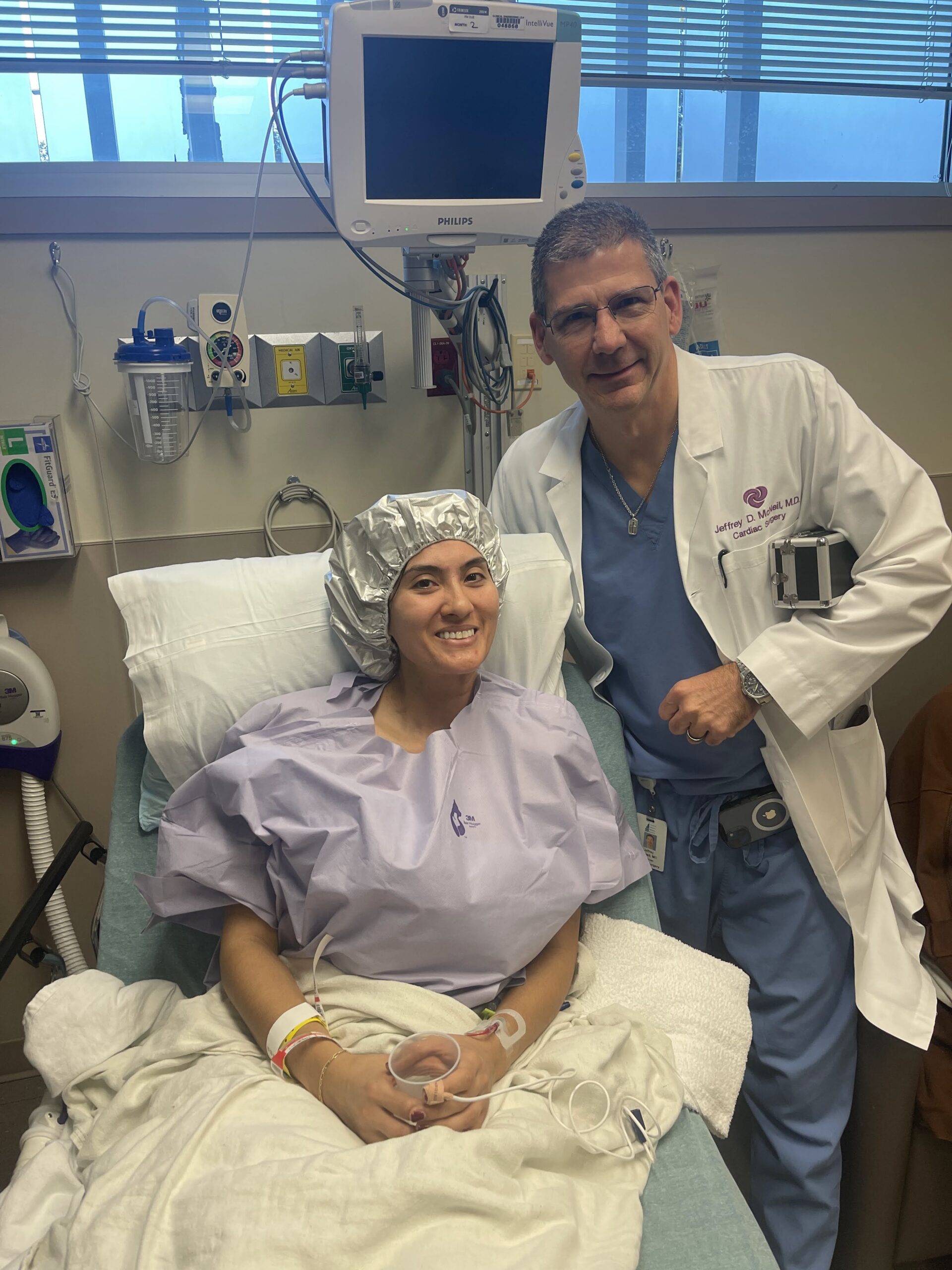35-year-old Tamara Fort is an ICU nurse and what many would consider the epitome of good health. She lifts weights three to four times a week and watches her nutrition closely. She isn’t someone you would consider to be at risk for heart disease. But for the past two years, she experienced shortness of breath, and knew something wasn’t quite right.
“I always chalked it up to some kind of respiratory infection that one of my three children would bring home,” she explains. But then the shortness of breath intensified this past October, especially after her workouts.
One morning she used her own stethoscope to listen to her heart. “I was shocked when I heard a heart murmur, so I had a nurse colleague listen as well. And she confirmed it,” Tamara says. The colleague suggested that she immediately see a cardiologist and she was admitted to the hospital the next day because of the severity.
Tamara had to advocate for herself to get additional testing because initially doctors thought she was too young to have any heart issues. But extensive testing revealed a leaky heart valve, a condition also known as mitral valve regurgitation. It is a common type of heart valve disease where the valve between the left-sided heart chambers doesn’t close fully, allowing blood to leak backward across the valve. If the leakage is severe, blood backs up in the lungs causing shortness of breath. Mitral valve regurgitation can make you feel very tired or unable to exercise normally. If left untreated, Tamara could have gone into severe heart failure.
She immediately reached out to cardiothoracic surgeon Dr. Jeffrey McNeil about treatment options because she had previously taken care of many of Dr. McNeil’s patients in the ICU. Dr. McNeil performed a mitral valve repair in December 2023. Part of Tamara’s tissue leaflets in her heart were floppy, so he used her own tissue to repair the valve. Dr. McNeil also performed an annuloplasty, which is done to reshape, reinforce or tighten the ring around a damaged or diseased heart valve. “Fortunately for Tamara, this kind of repair can last up to 25 years and if she needs another procedure in the future, there may be less invasive options,” explains Dr. McNeil.
The surgery was a complete success and Tamara is well into her 12-week cardiac rehabilitation program. She is now able to lift light weights and jog slowly. But most importantly, she was recently given the green light that she could pick up her three-year-old again. “That is something that I missed so much,” says Tamara.
Tamara is sharing her story with the hope that others will listen to their bodies and not ignore important symptoms, like shortness of breath. “Listen to your gut. Reach out to resources that you know that will give you an honest answer. And it’s ok to change your provider because you have to advocate for yourself,” says Tamara.
February is American Heart Month and a good time to think about your heart health. But experts say it’s something that we should all do year-round.
For questions about any of our vascular, cardiac, or thoracic services, please visit ctvstexas.com or call us at (512) 459-8753 to schedule an appointment.
Don’t forget to follow us on Facebook and Instagram and check our blog for regular updates.


